Filter by
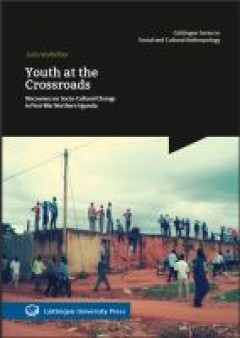
Youth at the crossroads : discourses on socio-cultural change in post-war Nor…
Based on eleven months of field work (2009-2011), this book analyzes the situation of youth in urban Gulu, Northern Uganda, in the aftermath of the war between the Lord’s Resistance Army and the Ugandan Government (1986-2006). Specifically, it focuses on the generation that was born and grew up during the 20-year war: How do members of this generation perceive and evaluate socio-cultural chan…
- Edition
- -
- ISBN/ISSN
- 9783863951696
- Collation
- 337p.
- Series Title
- -
- Call Number
- 305.235096761 YOU v
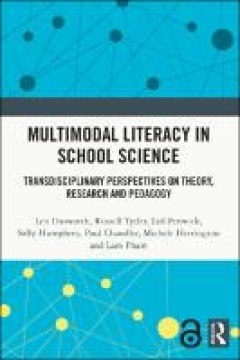
Multimodal literacy in school science : transdisciplinary perspectives on the…
This book establishes a new theoretical and practical framework for multimodal disciplinary literacy (MDL) fused with the subject-specific science pedagogies of senior high school biology, chemistry and physics. It builds a compatible alignment of multiple representation and representation construction approaches to science pedagogy with the social semiotic, systemic functional linguistic-based…
- Edition
- -
- ISBN/ISSN
- 9781003150718
- Collation
- XVIII, 267 p.
- Series Title
- -
- Call Number
- 507.12 MUL m
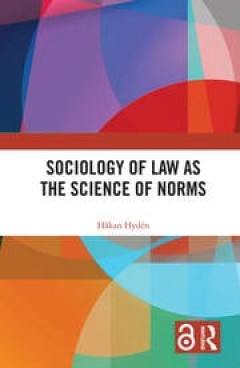
Sociology of Law as the Science of Norms
This book proposes the study of norms as a method of explaining human choice and behaviour by introducing a new scientific perspective. The science of norms may here be broadly understood as a social science which includes elements from both the behavioural and legal sciences. It is given that a science of norms is not normative in the sense of prescribing what is right or wrong in various s…
- Edition
- Ed. 1
- ISBN/ISSN
- 9781032149479
- Collation
- 338p. ; ill.
- Series Title
- -
- Call Number
- 306 HAK s
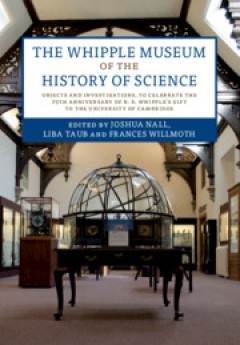
The whipple museum of the history of science : objects and investigations, to…
In this book the diverse objects of the Whipple Museum of the History of Science's internationally renowned collection are brought into sharp relief by a number of highly regarded historians of science in fourteen essays. Each chapter focuses on a specific instrument or group of objects, ranging from an English medieval astrolabe to a modern agricultural 'seed source indicator' to a curious col…
- Edition
- -
- ISBN/ISSN
- 9781108633628
- Collation
- xvii, 356 p. ; ill
- Series Title
- -
- Call Number
- 502.84 NAL t
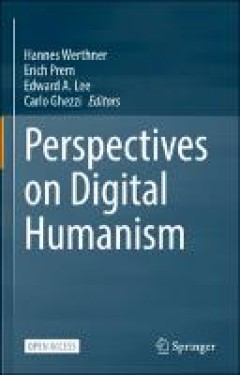
Perspectives on digital humanism
This open access book aims to set an agenda for research and action in the field of Digital Humanism through short essays written by selected thinkers from a variety of disciplines, including computer science, philosophy, education, law, economics, history, anthropology, political science, and sociology. This initiative emerged from the Vienna Manifesto on Digital Humanism and the associated le…
- Edition
- -
- ISBN/ISSN
- 9783030861445
- Collation
- xviii, 342 p. : ill.
- Series Title
- -
- Call Number
- 004 WER p

The right-wing critique of Europe : nationalist, souverainist and right-wing …
The Right-Wing Critique of Europe analyses the opposition to the European Union from a variety of right-wing organisations in Western, Central and Eastern Europe. In recent years, opposition to the processes of globalisation and the programme of closer European integration, understood as a threat to the sovereignty of individual member states, has led to an intensification of Eurosceptic sentim…
- Edition
- 2
- ISBN/ISSN
- 9781003226123
- Collation
- x, 290 p. : ill.
- Series Title
- -
- Call Number
- 341.2422 SON t
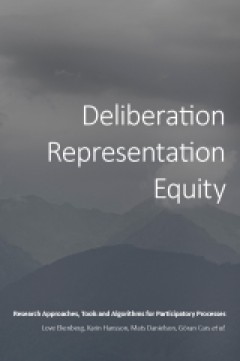
Deliberation, representation, equity: research approaches, tools and algorith…
What can we learn about the development of public interaction in e-democracy from a drama delivered by mobile headphones to an audience standing around a shopping center in a Stockholm suburb? In democratic societies there is widespread acknowledgment of the need to incorporate citizens’ input in decision-making processes in more or less structured ways. But participatory decision making is …
- Edition
- -
- ISBN/ISSN
- 9781783743056
- Collation
- 376 p. : ill. : ind. ; 24 cm
- Series Title
- -
- Call Number
- 323.042 DEL d

The DARPA model for transformative technologies: perspectives on the U.S. def…
The U.S. Defense Advanced Research Projects Agency (DARPA) has played a remarkable role in the creation new transformative technologies, revolutionizing defense with drones and precision-guided munitions, and transforming civilian life with portable GPS receivers, voice-recognition software, self-driving cars, unmanned aerial vehicles, and, most famously, the ARPANET and its successor, the Inte…
- Edition
- -
- ISBN/ISSN
- 9781783747931
- Collation
- xix, 485 p. : ind. ; 24 cm
- Series Title
- -
- Call Number
- 338.064 DAR d
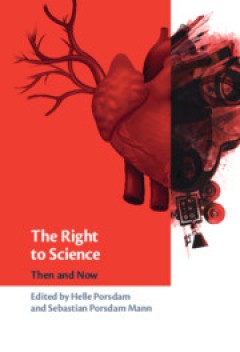
The right to science : then and now
That everyone has a human right to enjoy the benefits of the progress of science and its applications comes as a surprise to many. Nevertheless, this right is pertinent to numerous issues at the intersection of science and society: open access; 'dual use' science; access to ownership and dissemination of data, knowledge, methods and the affordances and applications thereof; as well as the role …
- Edition
- -
- ISBN/ISSN
- 9781108478250
- Collation
- xii, 324 p. ; ill
- Series Title
- -
- Call Number
- 342.0853 POR t

Application of decision science in business and management
Application of Decision Science in Business and Management is a book where each chapter has been contributed by a different author(s). The chapters introduce and demonstrate a decision-making theory to practice case studies. It demonstrates key results for each sector with diverse real-world case studies. Theory is accompanied by relevant analysis techniques, with a progressive approach buildin…
- Edition
- -
- ISBN/ISSN
- 9781838807641
- Collation
- 234p.
- Series Title
- -
- Call Number
- 658.403 PED a
 Computer Science, Information & General Works
Computer Science, Information & General Works  Philosophy & Psychology
Philosophy & Psychology  Religion
Religion  Social Sciences
Social Sciences  Language
Language  Pure Science
Pure Science  Applied Sciences
Applied Sciences  Art & Recreation
Art & Recreation  Literature
Literature  History & Geography
History & Geography